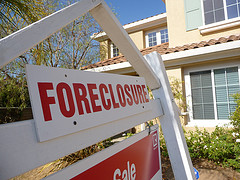 If you are wondering if you can negotiate a second mortgage after a short sale, I've got good news for you...YES YOU CAN!
If you are wondering if you can negotiate a second mortgage after a short sale, I've got good news for you...YES YOU CAN!
If your property had a first and second mortgage and you chose to do a short sale rather than allow a foreclosure (usually the best choice in my opinion), then here's what happens:
The real estate agent or broker usually negotiates an amount in a short sale to satisfy both the first and second mortgage holder.
In most cases, the second mortgage holder receives a lot less than the first mortgage holder.
Depending on the agreement, language, etc. of the documents, whatever the 2nd mortgage holder receives is all they get.
However, in some cases, when the 2nd mortgage is very large, the 2nd mortgage holder may have the right to make a claim for the remaining (called deficiency balance) due.
The 2nd has now become an unsecured debt, just like any other unsecured debt and can be negotiated.
The creditor will follow the same procedures and any other debt collectors...calls, letters, unlawful threats (violating FDCPA) in an attempt to collect on the remaining balance.
What should you do?
1) Make sure the sale documents give the collector the right to pursue the remaining balance.
When you signed the short sale documents, there was something in there that spelled out how the proceeds were to be distributed to the creditors (1st and 2nd mortgages).
If you are not sure, check back with the real estate agent or broker (they were paid for this!!!)
If it is determined that whatever the 2nd mortgage holder did not agree to a "full settlement for less than was due" (or something to that effect), then you may be liable for the balance.
2) If the collector is calling several times a day, send them letter demanding them to stop immediately!
You don't have to put up with harassment from any collector!
The Federal Trade Commission has very specific rules for what a collector can and cannot do.
3) Try to negotiate an amount that is much lower than they claim.
In these types of negotiations, it may be possible to get a reduction of 25%-50%, depending on your specific circumstances.
This might be the time to seek professional help, and we can help!








